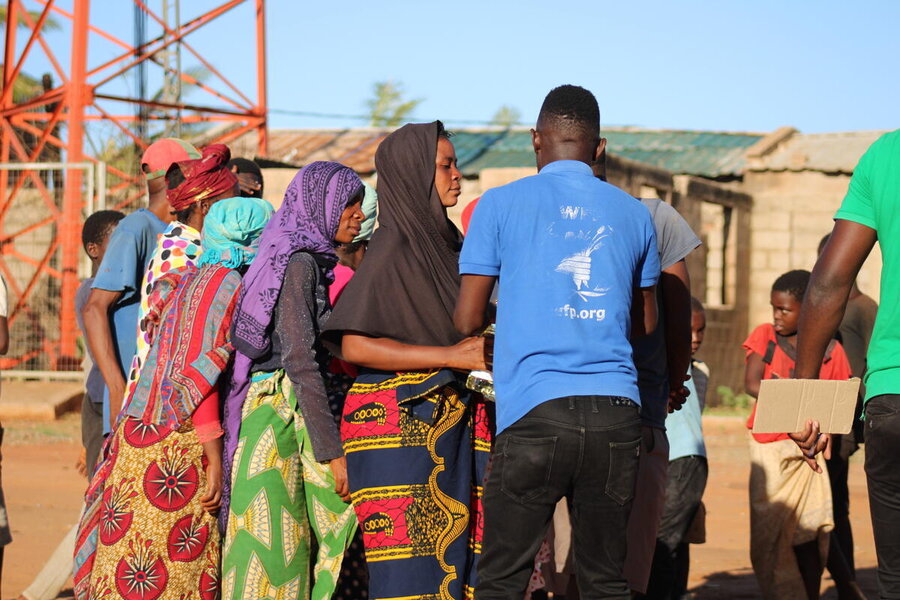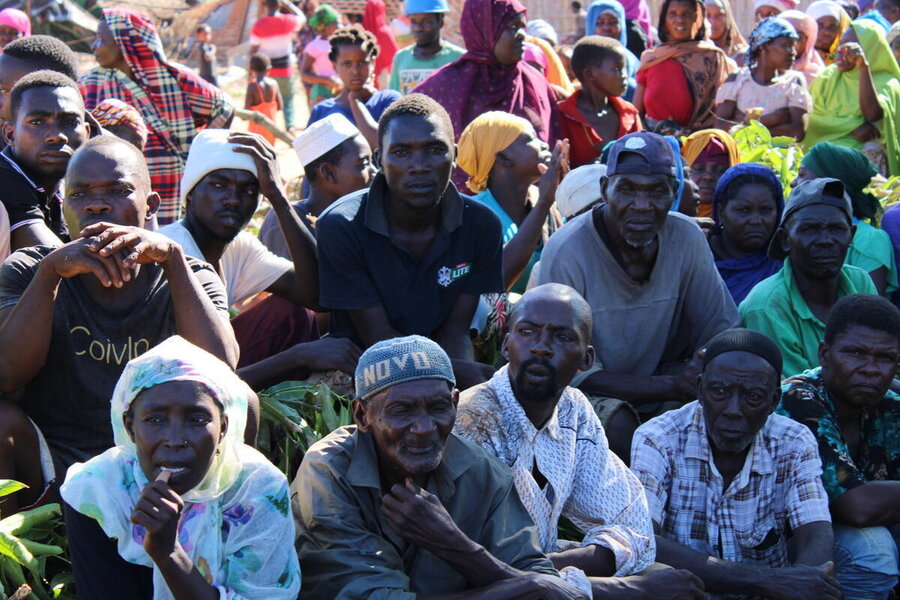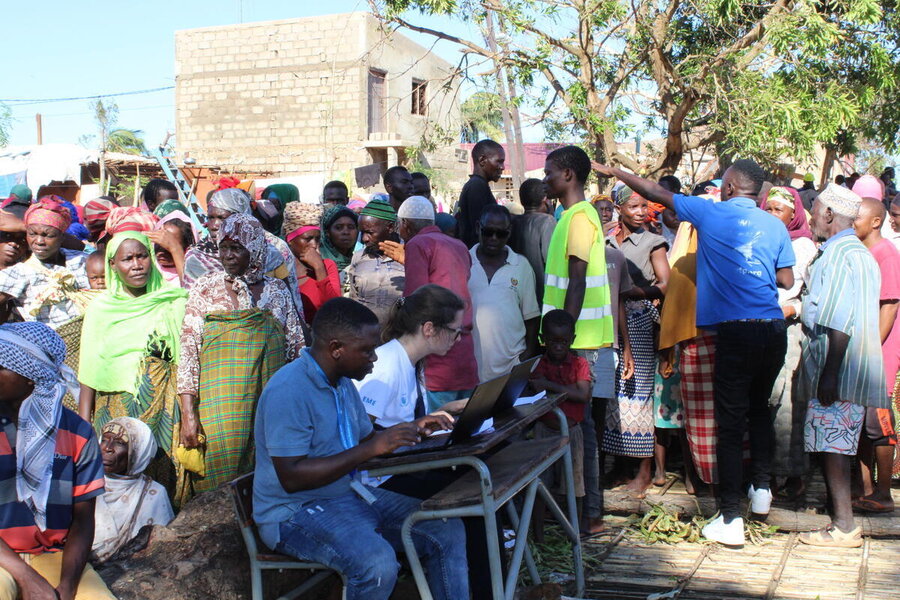Mozambique updates: Cyclone Chido triggers Government and UN joint response

The World Food Programme (WFP) is responding after Cyclone Chido, which struck Mozambique on 15 December leaving 2 million people at risk.
- Almost the entire population – 67,000 in Cabo Delgado’s Mecufi district – requires food, shelter, healthcare, kitchen utensils, and access to clean and safe water.
- The Government estimates that more than 680,000 people across Cabo Delgado, Nampula and Niassa have been affected, with 155,000 homes damaged or destroyed, 52 health units impacted, and 250 schools – including 1,126 classrooms – affected.
- The Ministry of Health reports 120 deaths and 868 injuries, with these figures expected to rise as assessments continue. Critical infrastructure, including roads, schools, and healthcare facilities, has been destroyed or severely damaged.

In Mecufi, Atima Domingos recalled the morning the cyclone struck: “The children were so scared. We huddled together in our small bamboo hut as the wind roared and the rain pounded. By 8am, when we finally stepped outside, everything was gone.”
The family’s six goats were killed, and only three of their 13 chickens survived. Domingos added: “The first days after the cyclone were the hardest. There was nothing to eat. We had to survive on rotten cassava. The children cried from hunger. Today, though, there is hope through WFP assistance. We received food and tonight the children will eat rice with beans.”

Less than 12 hours after the cyclone’s landfall, WFP delivered emergency food assistance to 500 affected families in temporary accommodation centres in Pemba City.
As co-lead of the Food Security Cluster and a member of the Global Nutrition Cluster, WFP is supporting the Government's response. A Joint Response Plan with UNICEF and the International Organization for Migration was activated to provide immediate assistance, including emergency food, shelter, cooking utensils, water-treatment products and other essentials to affected districts.
By 23 December, WFP had reached over 50,000 people in Cabo Delgado who were affected by Cyclone Chido, with distributions ongoing. The gas-rich province has seen a surge in insurgent attacks by non-state armed groups, pushing 835,000 people into hunger and displacing nearly 715,000.
Currently, about 3.3 million people in Mozambique are unable to secure enough food, including nearly 770,000 experiencing emergency levels of hunger.

- WFP relies on available food stocks in Pemba and Nacala to provide immediate food and nutrition assistance to those affected by Cyclone Chido.
- Proactive measures ahead of Cyclone Chido saved lives, with early warnings reaching over 420,000 people and pre-emptive food aid delivered to those in temporary shelters.
- Anticipatory-action plans for Cyclone Chido were initiated 72 hours before landfall in coordination with the local government. The Government confirmed the activation in two districts in Nampula Province: Angoche and Mogincual.
- Early-warning messages and voluntary evacuation instructions were disseminated via SMS and community radios, reaching over 420,000 people across all impacted districts.
- Food assistance was also provided in advance, targeting individuals in temporary accommodation centres.
WFP operations in Northern Mozambique
- WFP has provided food assistance to nearly 500,000 internally displaced people and returnees affected by the ongoing conflict in Cabo Delgado.
- Ahead of Cyclone Chida, aircraft from the WFP-managed United Nations Air Service were positioned outside of Pemba. Flights resumed on 18 December to all destinations, including the districts of Mueda, Mocímboa da Praia, Ibo, Palma and Macomia.
- WFP took preparatory measures to safeguard food stocks and assets. An amphibious vehicle capable of navigating through mud and water was deployed in Cabo Delgado to serve affected populations in hard-to-reach locations. Even before the dramatic uptick in violence, the province had the highest rates of chronic malnutrition, with more than half of children under 5 affected.
- WFP needs US$19 million to provide food assistance to 215,000 people affected by the cyclone for the next three months.
